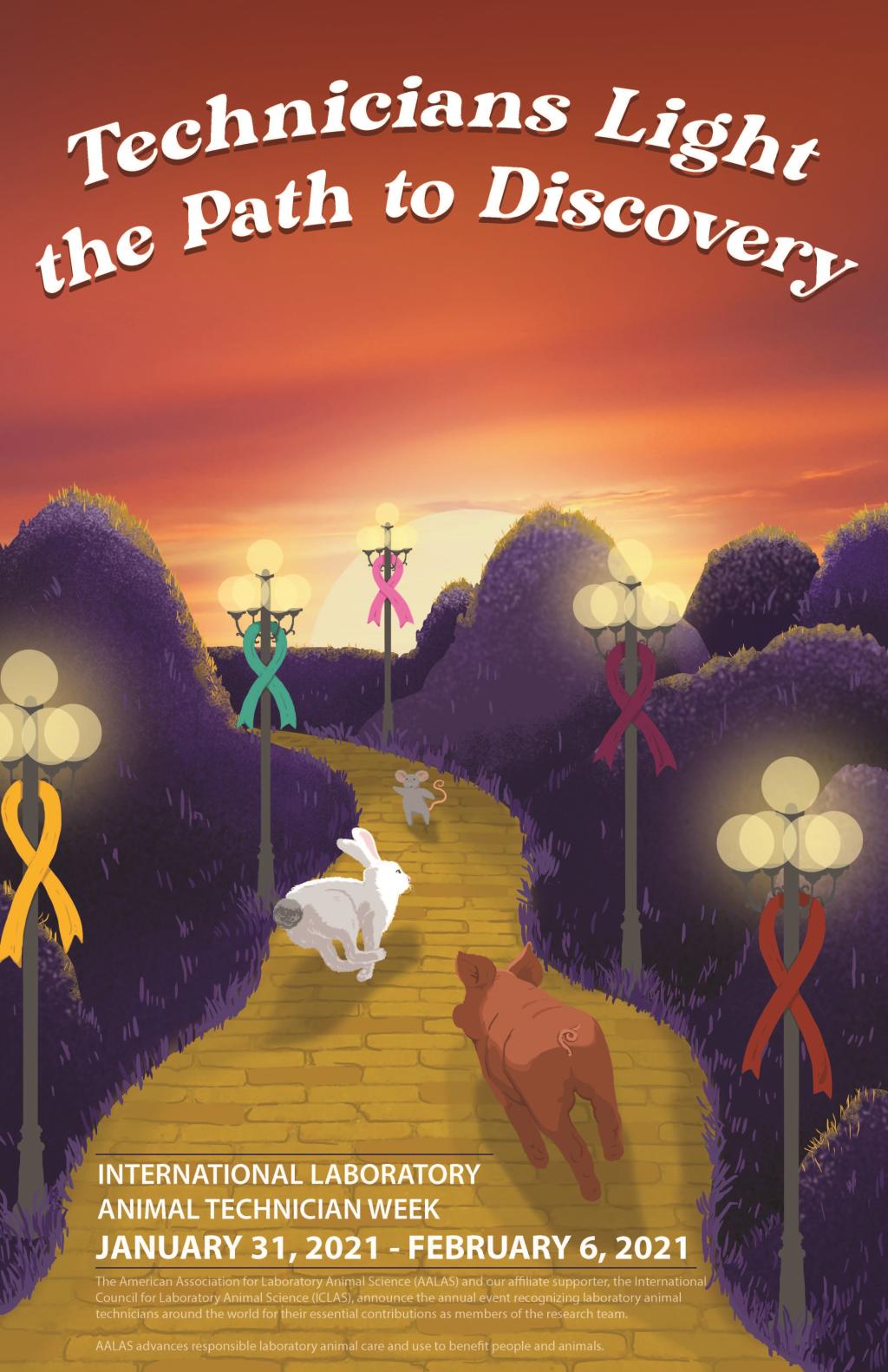International Laboratory Animal Staff Week
January 31st to February 6th, is the International Laboratory Animal Staff Week. Laboratory Animal Staff across the globe will be celebrated for the daily efforts they put in advancing biomedical research and animal welfare.

CMS Technicians and Administrative Staff provide the services that allow researchers to pursue world class research at Tufts University and Tufts Medical Center. Tufts Comparative Medicine Services (CMS) is made up of over 30 Laboratory Animal Technicians and 4 Administrative Staff. CMS Technicians are responsible for daily husbandry, veterinary care, technical services for research support, rodent colony and disease management and research model development. CMS Administrative Staff facilitate the intricacies of managing an animal program, including placing animal orders, performing complex billing services, and maintaining up to date census of animals and cages.
If you would like to provide praise or kudos for Tufts CMS staff, please e-mail those to cms-recognition@elist.tufts.edu.
The following are few interesting facts from about the animal program:
Who’s checking on the animals during the COVID-19 pandemic? Animal Care Takers and Veterinary Technicians are considered essential employees. They have reported to campus every day during the COVID-19 Pandemic under increased safety precautions.
Did you know that, in 2020, our animal care takers and veterinary technicians on Boston and Medford campuses performed over 2.8 million animal observations!?!? Our animal care takers observe each animal cage 365 days a year and our veterinary technicians performs health checks on all animals at least weekly! That’s over 7,700 a day!
Did you know that, in 2020, CMS administrative staff processed over 1,200 animal orders for both Boston and Medford campus!? Each animal order is meticulously reviewed for accuracy for age, sex, strain, and source!
Need more time in the lab? Our veterinary technicians perform pharmacokinetic sampling, gavage, injections, surgery, body weight measurements and other procedures so you have more time for other things. We also help investigators with other common rodent technical procedures, like bleeding and injections.
What do mice and the members of Miami ink have in common? Tattoos! Our veterinary technicians are in the facility every day managing investigator colonies and tattoos are a common way we identify mice.
How are medical devices developed for use in humans? The Surgical and Interventional Research Laboratories (SIRL) surgical technicians provide daily anesthesia, medications, and surgical assistance to ensure the safety and comfort of large animals used for device testing and training studies.
